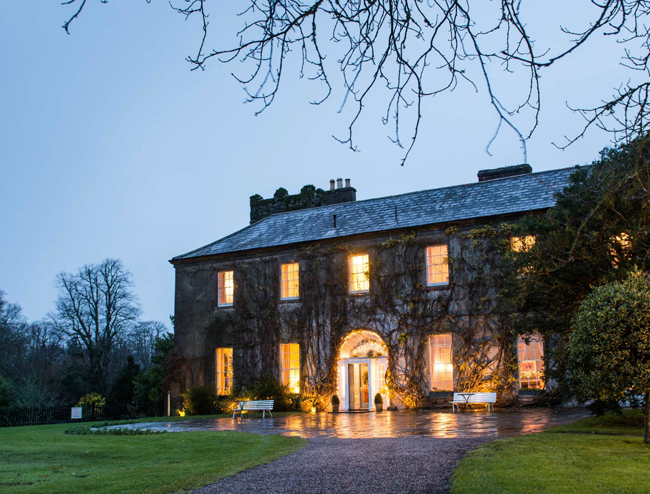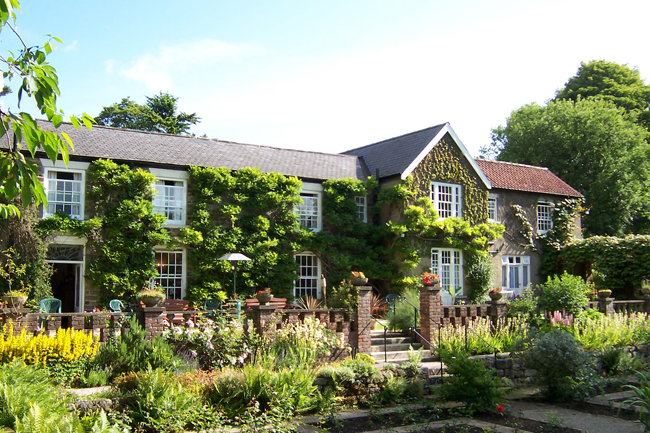We look back at 40 years of ‘The Good Hotel Guide'
Adam and Caroline Raphael, the owners of The Good Hotel Guide, talk to Katherine Price about the publication's place in the industryas it celebrates its 40th anniversary edition.
How has the Guide changed over the past 40 years?
Caroline Raphael: We now have an editor in Paris [M Astella Saw] and the whole thing is done over the internet and Skype, which has been an amazing change.
Adam Raphael: Some 30 years ago, the Guide
How much do hotels pay to be on the website?
AR: It varies, according to the number of rooms. The smallest hotel would probably pay about £100, and the fee for the largest would be about £600. Prices tend to increase a little annually - about 10% a year.
How is The Good Hotel Guide different from other guides?
AR: We try our hardest not to be influenced by the hotels or commercial pressures, and our team of inspectors is totally anonymous. Being anonymous is not always the easiest thing, but we do that because it's terribly important that we and our inspectors aren't treated specially. In that way, you get a real impression of what a place is like. There are lots of other good guides out there. The key difference for us is that a good hotel doesn't have to pay to go into The Good Hotel Guide. We will do anything to support good hotels in remote areas, particularly on islands, as they are crucial to the local economy. Like anyone else, we sometimes get our judgements wrong. When we do, our readers are very quick to point it out, so it is self-correcting. It may not be as fast as it should be, but it is self-correcting year-on-year.
CR: Some of our readers have been writing to us for 30 years.
AR: That's crucial. The reviews are the lifeblood of the Guide. We have an inspection budget - about £30,000 a year for about 20 inspectors - but it's really about our thousands of readers who write to us, because we couldn't possibly afford to inspect every single hotel every year. We also write about our selected hotels in the newspapers, and these publications are willing to take our copy because they trust our independence, which gets the hotels out to a wider audience.
Could a hotelier write for you?
AR: We get reviews from hoteliers and we prize them because they're professionals and they can see the cracks the rest of us can't.
Do you agree that the internet has changed hotels in the past 10 years more than they had changed in the preceding 30 years?
CR: Yes, the way you can go onto a website and choose your bedroom - you don't even need to talk to people.
AR: We do have one hotel in the Guide - the Howtown hotel in the Lake District - that doesn't have email or even an answerphone. It's a lovely hotel but trying to communicate with it is a nightmare, as we have to post everything. We sometimes take reservations for it, which we wouldn't do for anyone else. But it's such a nice, family-run hotel.
Do you think that hotels need to improve their online presence?
AR: Every hotel in the Guide is a good hotel, but it doesn't mean to say they're good at marketing. One of the things visitors to The Good Hotel Guide website can do is book a room at a hotel just by filling in an easy form. A copy goes to the hotel, a copy goes to me and an email goes to the user, saying if you don't hear from the hotel within 24 hours, please contact me. The number of readers who contact me after 24 hours, having not heard from the hotel, is large - far too many for my liking - and I then have to email the hotel, and I should not have to do that for a well-run hotel. If I was running a hotel, I would want all reservation requests replied to within a matter of hours, not days. Sometimes, of course, they live in an outlying area, where the internet communications are lousy, so I'm sympathetic when you're on a remote Scottish island. But they ought to be responding quicker.
The ownership of hotels has changed a lot. Far more used to be family affairs rather than owned by a hedge fund…
CR: Hotels such as Artist Residence often start off as one hotel and there are now four of them. We start to be a bit cautious when they expand like that. But the owners Justin and Charlotte Salisbury are very clever.
AR: We like them, they could be the new Robin Hutsons. Artist Residence is a good concept.
Do you think hotels are getting better?
AR: Yes, undoubtedly. The food is certainly a lot better than it once was. It's a very competitive industry, but people like Justin and Charlotte [of Artist Residence] show it can be done on very marginal resources.
What would be your advice to someone looking to set up a hotel?
CR: Choose your area. Look at the market.
AR: I do think food is very important. I'd put up with a less good bedroom as long as the food is good. Even if it's a wonderful bedroom, if the food is lousy, it wouldn't get in the Guide.
What does it take for a property to make it into The Good Hotel Guide?
CR: Quality of service, above everything. The quality of the bedrooms can be exquisite, but if the management doesn't care, then things don't work.
AR: Real character. We have one or two hotels that no one could claim are smart. They're just very good value and they've got real character - it's as a result of the person running it.

There are four hotels that have made it into every single Guide: Ballymaloe House in Midleton, Cork; Currarevagh House in Connemara, Galway; Lastingham Grange in York; and Rothay Manor in Ambleside, Cumbria. Why is that?
AR: They are still family-run and family-owned. We drop hotels when there's a change of ownership, unless we know that the new ownership is going to be as good. And we drop hotels when standards have declined and readers start complaining.
CR: And if people stop reporting on them.
AR: We want to be confident that the new ownership is sustaining the standards, so we'll drop it for a year, maybe, and then put it back in again. So there's a big turnover each year. About 15% of the hotels in the Guide are dropped each year.
CR: Ballymaloe is this wonderful hotel run by three generations of the same family. It's just very comfortable.
AR: It has the sort of eccentricity I like. We stayed there once and the whole weekend, there was a local artist doing a mural on the wall of one of the narrow corridors, so you couldn't get past him. It was an uncommercial activity, but somehow it summed up the spirit of this particular hotel. And there was wonderful food on top of everything else. And Lastingham Grange has been run by Bertie Woods' family for forever and a day.
CR: Rothay Manor did have a change of ownership last year but we thought it was good enough to carry on [in the Guide] because we stayed under the new owners. Are there any new hotels exciting you?
AR: The Mash Inn in Radnage, Buckinghamshire - a restaurant with rooms.

What do you think will be the future of the hotel industry in the next 40 years?
AR: There's always going to be a place for these small, individual, family-run hotels. I think the hospitality industry, in general, is a great trade to be in, and it is a really meritocratic trade. You can begin as a kitchen porter and work your way through and end up running the place. The business will continue to be transformed by the internet - we're really at quite an early stage - but there's always going to be room for niche, individual players. Hotels are such small, personal businesses. There's no Amazon that can come and knock them out; they're always going to be there. And provided the small hotel exists, we'll be there to promote it.
Guiding lights
The Good Hotel Guide is co-owned by Adam and Caroline Raphael, and edited by Adam and M Astella Saw. Adam is a former BBC Newsnight presenter, executive editor of The Observer and home affairs editor of The Economist. Caroline is a former BBC researcher and production assistant. She started working for the Guide as a sub-editor and writer in 1978 and became editor-in-chief when she and Adam bought it from the founder, Hilary Rubinstein, in 1998. Saw is a freelance lifestyle journalist living in Paris.










